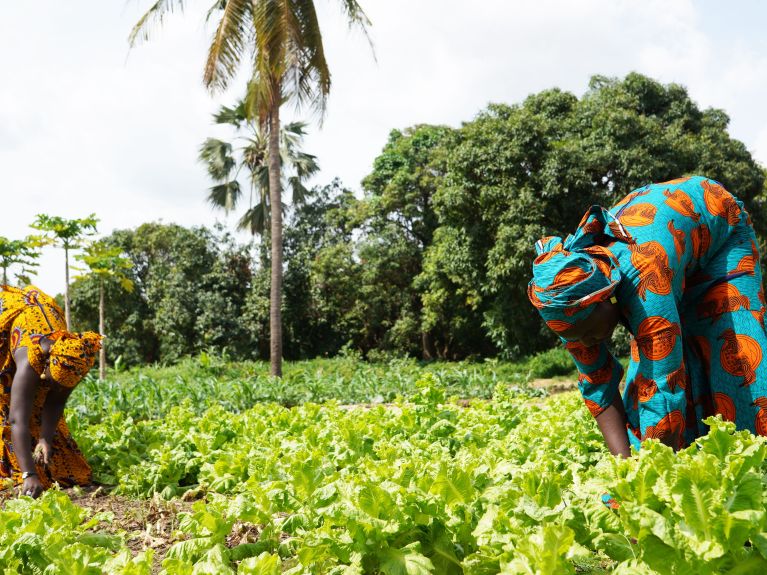Innovative Farmers
Synergies between top-down and bottom-up innovations accelerate sustainable growth and improved food supply in Africa, says Oliver Kirui, researcher at ZEF, University of Bonn.

How is the readiness for technical and digital innovation in Africa’s agriculture?
Africa is increasingly emphasising the role of innovation in development. Recent evidence suggests that there is considerable progress in the adoption of technical, institutional and systemic innovations in the agricultural sector across the continent. This has contributed to the social, economic, and technological progress among farming households over the last decade. There is great potential and the synergy between top-down innovations (originating from research institutions) and bottom-up (originating from farmers themselves) – to ensure sustainable agricultural growth and to improvement of food and nutrition security.
What does successful innovation in agriculture depend on?
There are drivers of innovation: The digital revolution has enabled many farmers to access information across the agricultural and food value chains – such as price information, input and ouput market situations etc. The growing digital fiance is also another factor that has driven access to necessary capital to enable farmers and other value chain actors to engage in farming and value chain activities in a more robust way. The need to adapt to and mitigate climate change is also another significant driver.
On the other hand, what circumstances and influences hinder innovation?
Main constraint to innovation is the limited access to proper agricultural education and training and technology. Farmers lack access or have low possibilities to capacity building initiatives that would have empowered them to become self-sufficient in food supply. The impact of climate change – weather variability and extreme weather events – has had devastating effects on farmers. Gains from innovations are lost almost entirely. Small-scale farmers do not have the resources or ability to mitigate or protect themselves from the effects of climate change. So climate change is as well a driver of Innovation as it hinders it. The other significant obstacle is lack of access to suitable agricultural finance and market access. Gains from technical innovations must be accompanied by other innovations in order for the small scale farmers to reap from the benefits of the innovations on farm. The policies generally as we see in different states – land, market, and financial policies – had significant influence on the growth and innovation of the small scale sector in Africa.
How are innovations changing people’s working lives in Africa’s agriculture?
There are several studies and evidence from programs across different value chains that show that the adoption of agricultural innovations has had positive and significant effect on farm production and household welfare concerning incomes and nutrition among others.
How does the world may benefit from the welfare of African farmers?
African farmers are innovative and require support to scale up proven innovations in the agri-food sector. By building the capacity and also supporting the investments in agricultural and food sector innovations, the world would help Africa meet several Sustainable Development Goals (SDGs).
You would like to receive regular information about Germany? Subscribe here:


